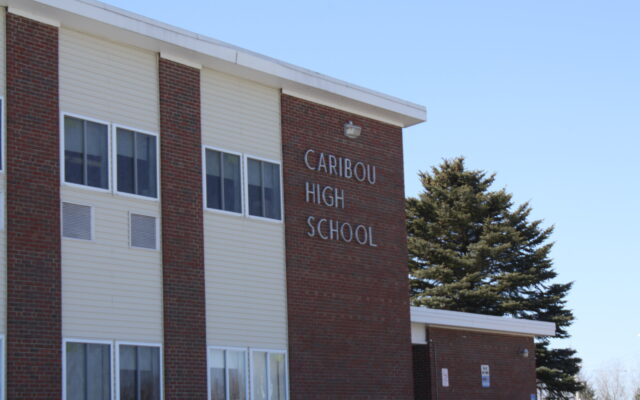CARIBOU, Maine — Residents of RSU 39 (Caribou and Stockholm) have approved a 2023-2024 school budget with a 5.8 percent increase over last year’s budget.
On Wednesday, voters passed the same $22,053,109 budget that school board members approved earlier this month. The budget will appear on the local ballot during a referendum election on Tuesday, June 13.
Caribou residents will pay $4,451,017 total for the school portion of their tax bills compared to $3,754,214 last year. Stockholm residents will pay $136,756 total compared to $133,557 last year.
The budget will set the local education mill rate as 11.31 mills per $1,000 of property value, an increase of 1.46 mills from last year.
Caribou resident Frank McElwain was elected to serve as moderator during the public budget meeting, held at the high school’s performing arts center. RSU 39 Executive Secretary Laurie Chapman served as election clerk.
Forty-six people attended the meeting, including 42 who were registered voters.
Voters approved all budget articles, which include the following expenses: $6,908,892 for regular instruction; $2,838,191 for special education; $1,704,677 for career and technical education; $629,673 for other instruction; $1,402,763 for student and staff support; $753,604 for system administration; $768,409 for school administration; $1,209,597 for transportation and buses; $2,419,442 for facilities maintenance; $3,327,357 for debt service and $90,500 for other expenditures.
RSU 39 is seeing an increase in state subsidies to fund public education, Superintendent Tim Doak said. The state will provide a total of $15,973,838 compared with $15,387,922 last year.
That means Caribou will need to raise $2,702,385 as its required local share and Stockholm will raise $124,066. Voters approved both amounts Wednesday.
The state considers a district’s student population when calculating subsidies, Doak said. Caribou Community School has 780 students in pre-K to eighth grade and Caribou High School has 467 students.
Caribou Community School in particular has seen a large increase in students, Doak said. Since the school opened in 2020, the population has gone up from approximately 700 to its current number.
If that trend continues, the district might consider hiring more teachers. The district opted to not add new teachers to this year’s budget, but will monitor class sizes in the coming year, Doak said.
“It’s both a good and bad problem because we don’t want to put more strain on teachers and administration,” Doak said.
Special education will see the most significant budget increase. That budget will be $2,838,191, a 33.8 percent increase over the previous year’s $2,118,345.
More students are receiving services outside the district, most notably at Opportunity Training Center in Presque Isle, Doak said. Those students require more one-on-one time with staff members and transportation.
In his budget presentation, Doak explained that the majority — 31 percent — of taxpayer funds support the regular instruction part of the budget. That budget is $6,908,892 and includes teacher salaries and benefits, textbooks, supplies, technology, field trip transportation and staff travel.
Per teacher union negotiations, the teacher salaries and benefits have increased to $4,630,741 and $1,785,195, respectively, compared with $4,357,694 and $1,537,495, respectively, last year.
But that amount will not include five ed tech positions that were being funded with federal COVID-19 relief monies and teaching positions in math, music and world languages.
The math and music positions have been unfilled for several years, as the district has received no applicants. World languages teacher Jonna Boure will see her position eliminated July 1 but she has found work at another district, Doak said.








